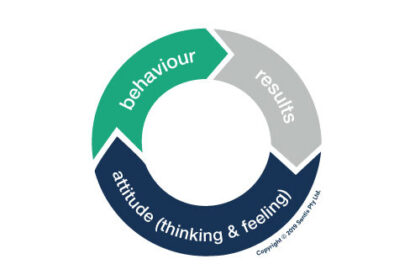Another year ticks over. As we recover, red-eyed from the holiday festivities, we often reflect on the year behind us and our hopes and goals for the coming year. Some may be tempted to write a mental list of the things to do differently at work this year. Be more organised. Help out the team more. Commit to working safely every day.
Despite good intent and (at least initially) high levels of willpower, many of us fail to achieve our New Year’s resolutions. So, how do we avoid our resolution of working safely becoming another failed attempt at change?
We know that change is not easy and willpower alone is too exhausting to create lasting results. After all, our brains are designed to run off habits and changing these takes a lot of energy!
If you’ve been thinking a renewed focus on safety at work could benefit you, your colleagues and your loved ones, here are some tips to help you successfully create the change you want to see.
Consider why you want to focus more on your safety at work
What’s in it for you, your colleagues and others? What are the people, things, places or future plans your investment in safety will serve to protect? Perhaps you want to enjoy running around with your children as they grow up. Perhaps you want to remain fit and well enough to finish those house renovations. Maybe you’re hoping to enjoy some great catches on the fishing trip you’ve got planned or the trip around Australia you’ve always dreamed of.
Write a few of these things down. Remind yourself of them from time to time. It’s easy to forget why we’re making a safe choice in the heat of the moment, especially when the pressure’s on. Perhaps carry a photo of your family or future plans in your pocket/hard hat/at your desk to remind you? By making it personal, you can keep the reason for staying safe front of mind.
Talk to your mates about your commitment to working safely and enlist their support
Sharing your commitment increases the chances of you sticking to your goal. A work environment where teammates encourage you and understand why you’re doing things differently will not only help you stay focused but may also positively influence their decisions too. Even if your mates give you a hard time for investing in your safety, the rewards to be gained far outweigh the discomfort of a few teasing comments.
Be prepared to think differently
Often the biggest reason we fail in our change attempts is the way we think. Self-doubt or unhelpful thinking habits quickly undo our good work. Take for example the thought “I don’t know why I bother doing my risk assessment properly when no one else seems to care”.
It may be true for some of us that we work in an environment where safety is not as valued as we’d like. Our brains are also designed to conserve energy, so if there is a way to save time or effort, our brains will opt for it. But, who and what are we working safely for?
Challenge your own thinking. Try and catch thoughts that take you away from your goal. Ask yourself if there is another way to look at the situation. Does what you are saying to yourself sound like good advice that you would offer someone else? We think habitually and often don’t challenge what our voice inside tells us. Our thoughts guide our actions, so now’s a great time to get back in control of our how we wire our brains.
Develop helpful habits
Our brains love to run on autopilot. If we can make some safety processes automatic, our brains will thank us for it. Some helpful habits might be: checking your PPE after crib break before going back to your work area; asking your mates for feedback on the risk assessment prior to starting a new task; or crossing the road using the pedestrian crossing. These feel effortful at first. But over time, new habits don’t take much energy at all and set you up for success so your brain can use its energy for greater situational awareness.
Reward your efforts
While it would be nice for our workplace to recognise our improved safety efforts, the only person in charge of our choices is us. This means we are the best person to acknowledge the improvements we’re making. Take note of what worked better for you as a result of focusing on yours and other’s safety? How might this have contributed to a safer and more productive shift? What did you get to enjoy at the end of your swing/shift as a result of investing in your safety each day? Reward and recognition helps to cement new habits and create lasting change.
Making a change isn’t easy—but it is possible. With some good planning and a positive mindset to drive our behaviour change, we can achieve our goals. What will you do to ensure safety isn’t just another New Year’s resolution?




